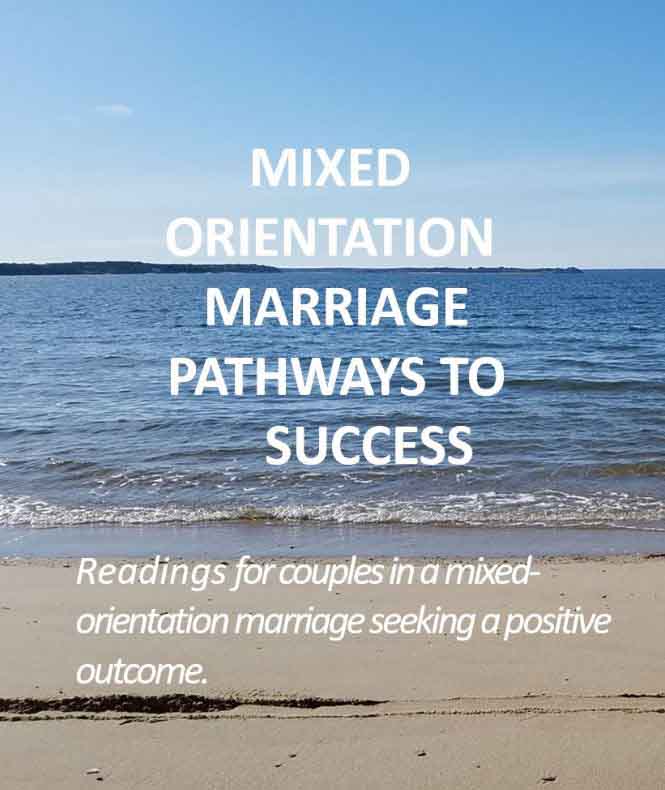Mixed-Orientation Marriage: Pathways to Success
Talking about Sexuality
I have found a surprising number couples in spite of spending years together never really get comfortable talking about their sexuality. Some couples fall into the sex only with the lights off missionary position routine . Like so many things we learn about mixed-orientation relationships I found I could learn to have a sex positive outlook about our sexuality and I have become as comfortable talking about my sexuality as any other interest but that comfort only came after mindfulness and practice. Communication with our spouses about sexual preferences and what we enjoy can help find shared pleasures and a better understanding of our partners. I have heard a number of success stories where couples have renewed and refreshed sexuality within their marriages. Some couples describe the best sex in years in the period after coming out. This is often referred to as the "honeymoon phase" and enough couples experience it that I’d say it's a thing to be aware of and look to nurture it, have some fun. I have found these discussions work best when we look to build bridges to common interests and when there are differences look to see if there is a way to share in them or perhaps just leave it at “that sounds nice but it’s not my thing”
Sexual Health and Sexually Transmitted Infections
In mixed-orientation relationships where there is more than one sexual partner it is important to learn to discuss safer sex practices , STI’s (sexually transmitted infections ), and proactive sexual health. It is beyond the scope of this book to talk in detail about STI’s but it should be understood just as we all get colds we all can get an STI and some STI's are more serious than others. HIV and STI’s do not know looks, or famous or how educated one is. Regular sexual health screenings should be part of every sexually active persons health management. Far too many primary care physicians and family practitioners do not ask or offer STI/HIV testing to their married patients because of false assumptions. That’s slowly changing but if you don't ask to be tested they may well not offer. I personally feel that our personal physician needs to know about our sexuality so they can make informed medical decisions but for variety of reasons coming out to one's physician has many of the same concerns and fears as coming out to anyone else in our life.
Another option to consider, whether you are out to your physician or not , is your local family planning and sexual health clinic. I have found them to be best equipped to offer testing and sexual health counseling in a caring, compassionate , and confidential setting. First of all that is what they do so they are really comfortable talking about sexuality and sexual practices, Anyone who has searched the internet knows that there is often conflicting information about what is safe and what is not so talking with a professional in person with the benefit of understanding your personal situation can be very helpful.
Finally there are also online testing companies,you order and pay online , print out the lab requisition and visit the designated local blood lab just like you do with your regular lab work . No matter what option one chooses it is important for anyone who is sexually active to learn to talk about how they're managing their sexual health and that of their partners, When a marriage has some sort of open relationship one needs to be mindful that it is not just about risks for oneself they must also consider the potential health risks for their partners. Part of that discussion about risks should be if condoms should be reintroduced to the marriages sexuality. There are many compromises that are made to make a mixed-orientation marriage the best it can be and this is one that may just make it work better .
Previous Understanding challenges to success Next Asexuality and Differing Sexual Desires

